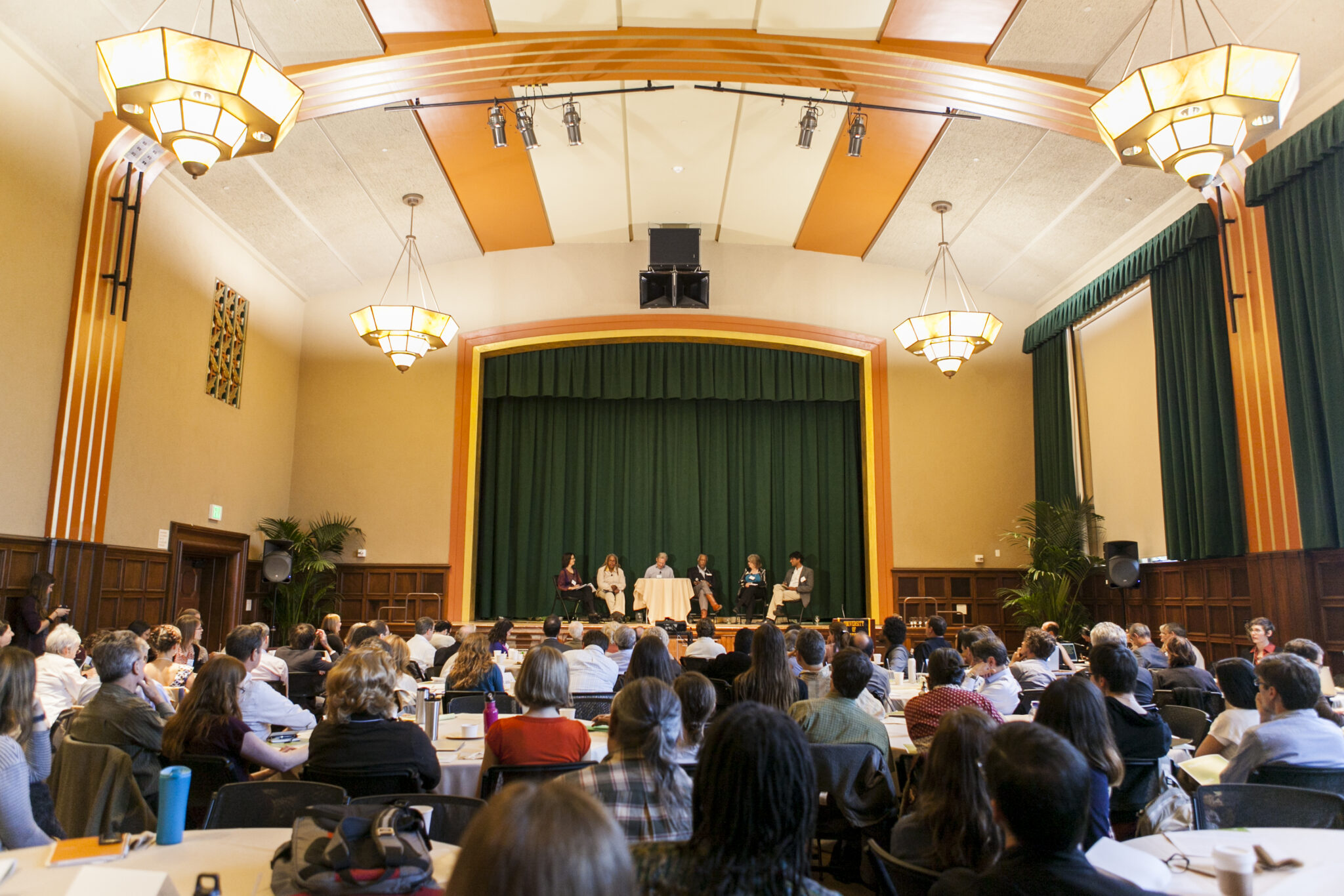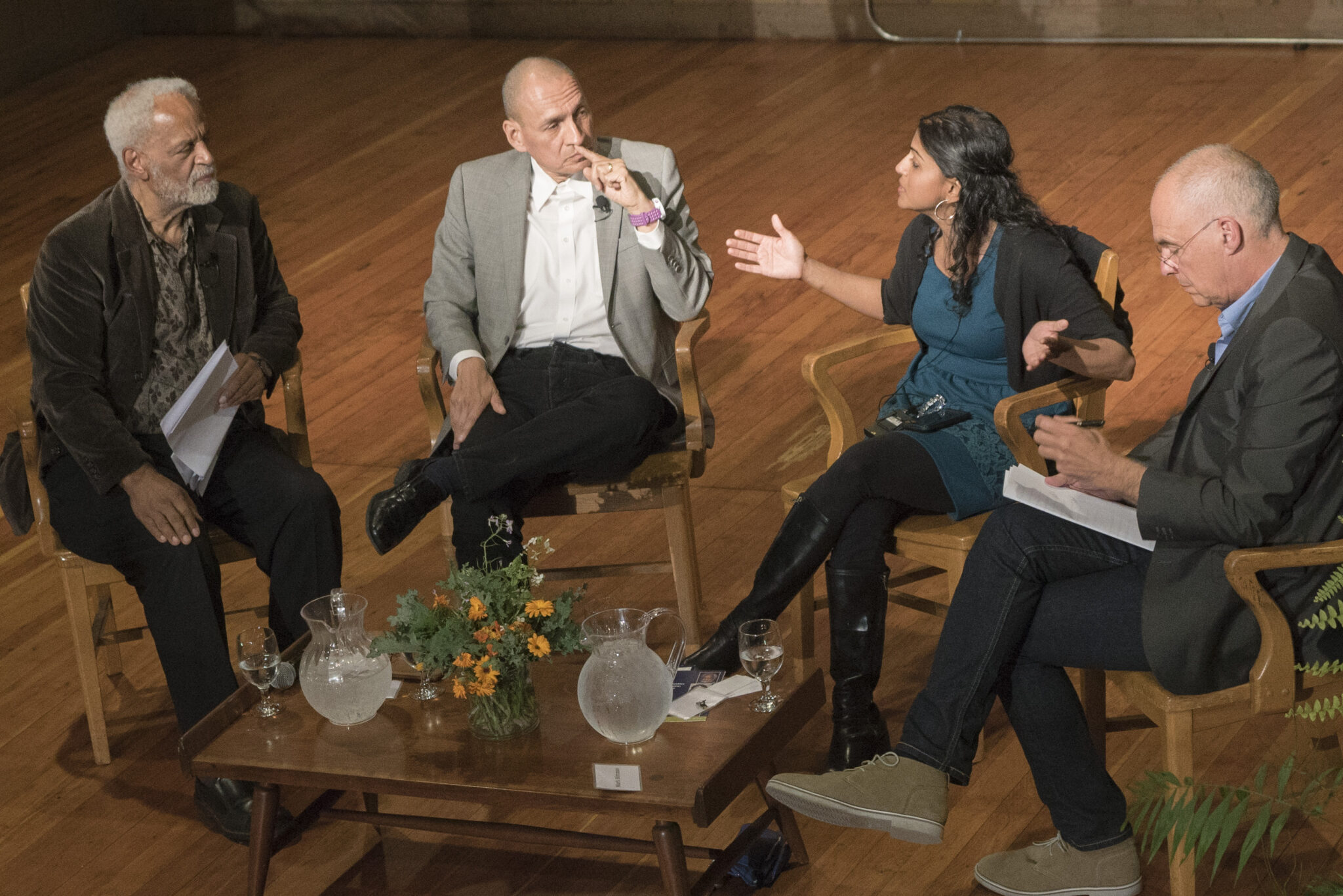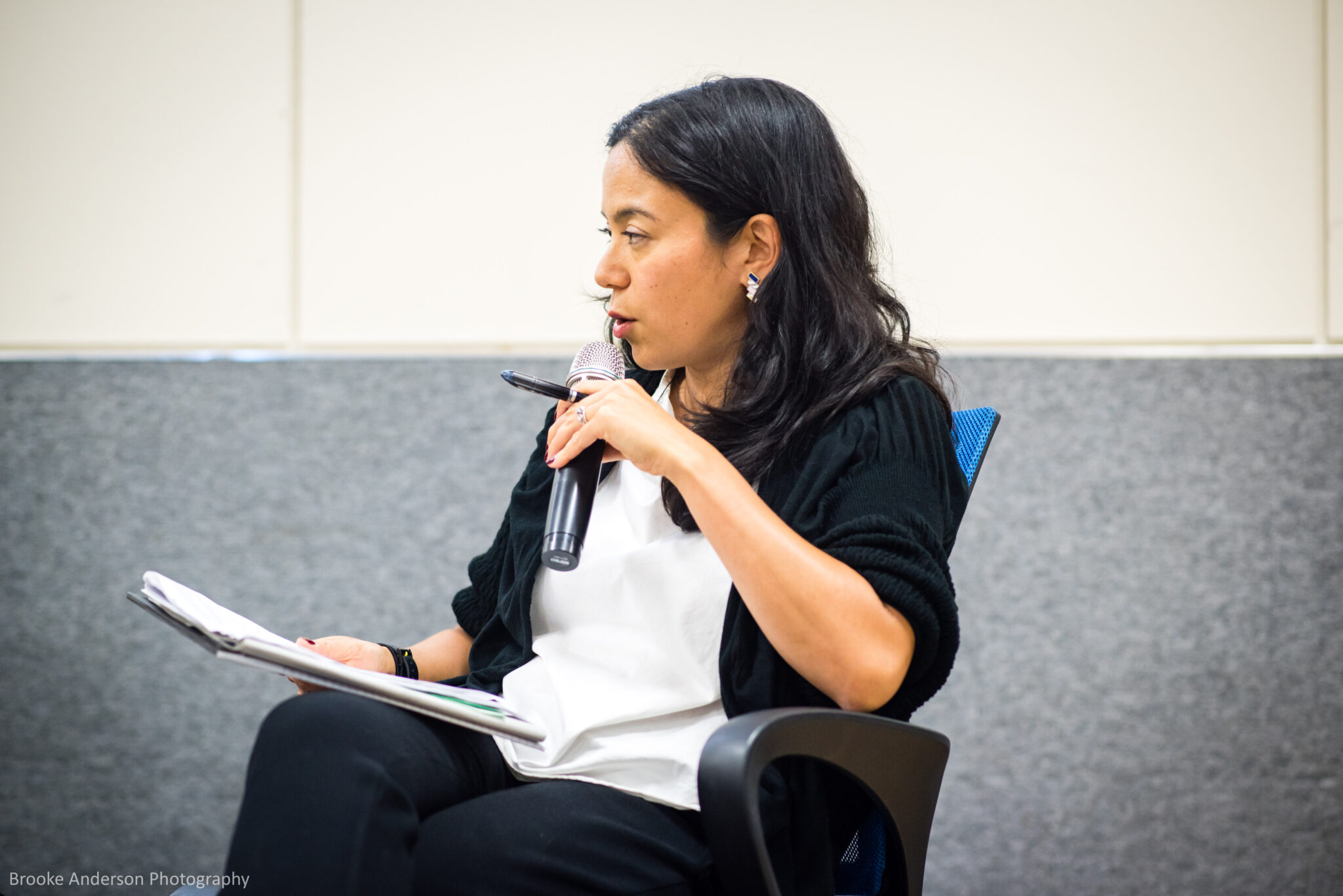Our Team
Meet the people at the helm of the Berkeley Food Institute.
About Us
In 2011, a working group of UC Berkeley faculty, postdocs, and students formed the Center for Diversified Farming Systems (CDFS). Today, this interdisciplinary team of researchers explores topics like soil health, pollination, agriculture technology, and ecologically-based farming practices — with the overarching question: How can biological, economic, and cultural diversity at the farm level affect the sustainability, resilience, health, and equity of food production?
But the founders of CDFS — ESPM faculty Alastair Iles and Claire Kremen (now at the University of British Columbia) — knew that food production and farming practices were just part of the larger food system. They wanted to engage with scholars looking at other areas in the food system, to apply a whole system approach to food and agriculture research.
In the spring of 2013, CDFS organized a symposium at the Clark Kerr Conference Center to gather food systems researchers from across campus and beyond. The symposium included experts on policy, food labor, commodity chains, human rights, and other disciplines that intersect with food. Labor researcher and activist Saru Jayaraman shared her efforts to improve working conditions and wages for restaurant workers. Legal scholar Oliver De Schutter attended and discussed the basic human right to accessing good, quality food.
This symposium marked the launch of the Berkeley Food Institute.

In May 2013, a food systems symposium at the Clark Kerr Conference Center marked the official launch of the Berkeley Food Institute.
From seeds planted by CDFS, BFI has grown into a network of more than 150 affiliated faculty and staff representing departments and programs from eight schools across campus. Through this network, we have supported and boosted the food studies curriculum on campus through the Graduate Certificate in Food Systems and the Food Systems Minor. We organize and sponsor events to connect our campus community to the larger food movement. We present UC research to legislators to inform how the food system is shaped through policy. We publish research reports and policy briefs. We guide tomorrow’s food systems leaders to the first steps of their career pathways.
As a staff, our mission involves leveraging UC Berkeley resources to shape a just food system in California and beyond. We are working to transform the way people understand food — not only how it’s produced but also how it’s prepared, distributed, sold, and consumed, and how it can represent a connection to land, health, and sovereignty. We envision a food system that prioritizes equity and justice to enhance the health of people and the environment.

Troy Duster from the Warren Institute on Law and Social Policy at UC Berkeley, Ricardo Salvador from the Union for Concerned Scientists, Saru Jayaraman from the UC Berkeley Food Labor Research Center, and renowned cookbook author Mark Bittman discuss cultivating justice in food systems in a BFI forum on March 31, 2015. Photo by Jim Block

BFI Executive Director Nina F. Ichikawa speaks at the “Food in the 15th” assembly district candidates forum on October 3, 2018. Photo by Brooke Anderson